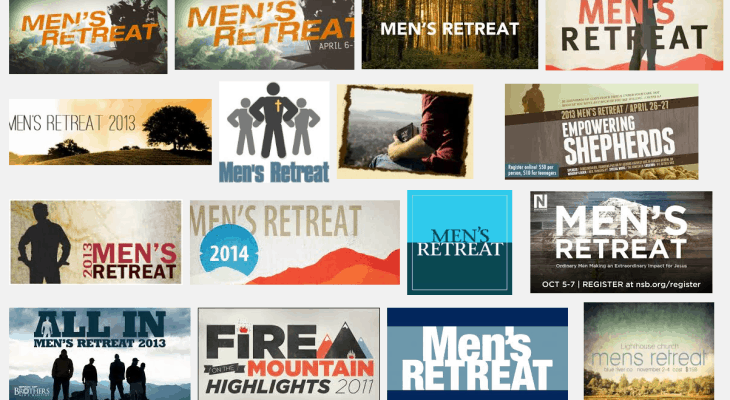 I’ve thought a lot about gender issues within Christian community, but something that happened recently helped to put words to my experience as a woman in the church. I went out to dinner with some new church friends to celebrate my birthday, and as we were entering the restaurant I held the door open for them to walk inside ahead of me. Instead of following my lead, they stopped walking altogether and jokingly chastised me that “it just wasn’t right” before essentially pushing me inside so they could hold the door.
I’ve thought a lot about gender issues within Christian community, but something that happened recently helped to put words to my experience as a woman in the church. I went out to dinner with some new church friends to celebrate my birthday, and as we were entering the restaurant I held the door open for them to walk inside ahead of me. Instead of following my lead, they stopped walking altogether and jokingly chastised me that “it just wasn’t right” before essentially pushing me inside so they could hold the door.
Needless to say, it was an awkward transition.
Although this is just one small experience, I believe that it resonates with the current status of women in church leadership.
We don’t know how to walk through a door when a woman holds it open.
We’re so conditioned to receive teaching and leadership from men in official church positions that it can feel awkward when the message comes through a different medium. I can count on one hand the number of female pastors I’ve heard preach, and I spent most of their sermon time focused on how they got to the pulpit instead of what they say from it.
So just as we learn how to behave as “ladies” and “gentlemen” when we are out in public spaces, we must learn how to follow women leaders. As with any socialization, this learning needs to be intentional (and even subversive) if we hope to change the traditional and gendered ways of structuring our church communities.
Here are some ideas for how we can change church culture:
Use Your Voice
Too often I have found myself fuming after a sermon that relied on gendered stereotypes, yet I haven’t channeled that frustration into speaking to my pastor about why gender issues are important to the whole church body. If you have the time, create space to meet with the leader to address your concerns. If you’re not feeling confrontational, write a letter or an email instead. The important thing is doing something; silence can be easily translated as subtle affirmation.
Watch Your Language
Words are one of the easiest ways that we reinforce gender roles within our church communities. This week, affirm women (of all ages) that you see leading others well. As we begin to shed old ways of relating to one another, we have the opportunity to call each other into God’s unique purposes for our lives—let your words reflect how you desire to see others grow.
Change the Script
Few things get under my skin as much as gender-specific church programming that relies on tired stereotypes (see my Google search for “men’s retreat” and “women’s retreat” below). Instead of replaying these narratives, encourage leaders who plan events and create church messaging to focus on topics that all believers can relate to. We need to rekindle our imagination for how God relates to us, and our church programs are a perfect place to experiment with new ways of engaging our faith.
Learn the Difference Between Peacemaking and Peacekeeping
Although ethereal “spiritual values” such as harmony and goodwill are often used to silence the call for women’s full equality, don’t take the bait. Remember that true peace, God’s shalom, is fundamentally at odds with oppression and injustice. As we work with God to uproot both subtle and blatant evils in this world, there’s going to be some opposition.
Find a Friend to Walk with You
Just as Jesus sent his disciples out in pairs, we too should have a partner to come alongside us in supporting women in church leadership. Ideally this would look like someone you personally, but there are growing resources for finding support. However you find it, don’t let yourself believe that you’re alone in this struggle—collectively we possess a strength that we are just beginning to realize.
I write these suggestions not only to encourage you, but me as well.
It’s easy to feel like gender issues are too deep and complicated to be rooted out, but I am encouraged by this scripture from the book of Romans:
“For I am sure that neither death nor life, nor angels nor rulers, nor things present nor things to come, nor powers, nor height nor depth, nor anything else in all creation, will be able to separate us from the love of God in Jesus Christ our Lord.” (Romans 8:38-39, English Standard Version).
Just as God’s love for us is unwavering, so also is the promise of that love to transform and redeem our world, communities, and lives.
Let’s focus more on the open door and less on who is holding it open.
—————————————————————————–
Photo Credit: morguefile.com






13 responses to “How to Walk Through a Door When a Woman Holds It Open”
Thank you for this! So important.
Sidebar: I often allow the male person I’m with to open the first one; at the second one I say, “And now it’s my turn to be kind” while opening the door. After the first two doors, friends and associate who are male usually understand my intentions. We then we take turns.
I love this. I think recognizing the role of socialization in conditioning us to hear men differently than women I church, even if we want to believe women can teach, is just a great point. It’s a practical reality that significantly informs how we grow in supporting men and women in teaching and leadership together.
Love it! I’ve often experienced the awkward door situation–I appreciate that you saw deeper significance in a casual encounter. Change makes people uncomfortable in a way that they don’t want to walk through the door if the door-holder isn’t what they were expecting. Thank God for meeting us on both sides of the door.
Another comment, based on the 21 March 2014 article on “deeper theology of women”:
Exclusively male access to official/ordained ministry is not a “human right,” but Christ has the divine right to call those he wants here and now. It is not an injustice against women in the sense that nobody has a right to the redemption or any other grace, but it is an injustice against Christ by forcing him to call only males in today’s world, forcing him to remain in the patriarchal culture he had to deal with during his earthly mission to the people of Israel.
Are we to assume that Christ refuses to open the door in today’s world? If not, who are we to block the door in the name of Christ?
This is great! Thank you for sharing! I read a post earlier that someone shared and he was a minister. It was about the “fire” being stirred up and returning to the church. In the article, the only examples of previous example of “fire” in leadership were male. I “liked” the minister’s post, and then commented:
“I believe we are seeing a rising up of women in the Church at the moment. My prayer is that they get to function in all the gifts and callings Jesus has equipped them for!”
A lot of other people liked his post, but only one person liked my comment. I thought that was kind of telling. But another thing that was telling, was how nervous I felt even saying it, almost to the point of being disrespectful because this minister was well know. I felt almost unworthy to speak, simply because I am a woman, and not well known myself.
Megan, thank you for sharing your thoughts on this issue. The patriarchal views in the church are so deeply embedded that many times we accept them without thinking. To be sure, our society has come a long way from a hundred years ago. However, it seems to me that the Christian churches are behind the rest of society in their views about the role of women. As a single women who has a full-time job (that, by the way, I enjoy), the women’s ministries are frequently out of touch with my reality. Yes, I am feminine and proud of it. But, that does not mean that I am only interested in crafting or child rearing. Or that technology is beyond my comprehension. The end result is that I often feel uncomfortable attending Christian women’s functions. They inevitably are run like a women-only baby shower with games and competitions. They feel it is appropriate to “encourage” you to share intimate details of your life with people who are mere acquaintances. One of the pictures you posted above for the men’s retreats says, “Empowering Shepherds”. I’d love to attend a women’s retreat with that theme! 🙂
I cringe when our churches use the term Men’s Advance, as if the word Retreat is a feminine term to be avoided. I don’t think Jesus was concerned that when he retreated for time alone with God he was afraid he’d be discredited for weakness.
Oh my, the situation is even more complex in the sacramental churches where only males are thought to have some metaphysical attributes that qualify them to be “icons of Christ” while, at the same time, disqualify women as they are not endowed with the same male ontology.
Below is pasted a letter I am currently sending to bishops and friends about this issue, and any help to make it more concise and easier to read would be most welcome:
LETTER (please keep in mind that this letter is written from a Roman Catholic perspective)
The church is a family, but our patriarchal church hierarchy is becoming stale in today’s world. We need both fathers and mothers ordained to act in the Person of Christ.
No dogma precludes ordaining women to the priesthood and the episcopate. However, our sacramental theology must be clarified to separate patriarchal ideology from revealed truth.
John Paul II’s “Theology of the Body” is a solid foundation and covers unity in diversity (“original unity of man and woman”), individuality in community (“communion of persons”), and equality in mutuality (“spousal meaning of the body”). The “complementarity” of man and woman is for mutual enrichment, not mutual exclusion.
Jesus never identified himself as a patriarch. The Holy Family was a not a patriarchy. The Trinity is not a patriarchy. Jesus Christ is head of the church because he is a divine Person and our Redeemer, not because he is a human male.
To act “in persona Christi capitis” means to act in place of a divine Person. Any baptized human person, male or female, can be ordained to act in the Person of Christ.
The exclusively male priesthood is a choice, not a dogma (CIC 1024, CCC 1598). By the power of the keys given to Peter, the Pope does have the authority to change this patriarchal choice.
Many nuns have the “signs of the priesthood” and could be ordained. That would be the most sensible way to alleviate the shortage of priests throughout the church.
Let us pray that the church can discern the difference between patriarchal ideology and revealed truth, and act accordingly.
Mary, Mother of the Church, pray for us.
Luis
Luis, this is beautifully written! I don’t know enough about Catholic theology so don’t have any feedback along those lines, but I think this is very powerful. Thanks for sharing it here, and yes, we are praying for change alongside our Catholic brothers and sisters!
Megan,
What a wonderful post with so many practical strategies for us to consider. Also, your “door” example created such a great visual for these issues and our need to work with the process and language we take for granted. Thank you!
Stephanie
Thanks for your encouragement, Stephanie! When I was reflecting on the experience after the fact I was surprised at how applicable that door metaphor was in communicating my own thoughts and experiences. I’m glad to hear it was helpful for you as well!